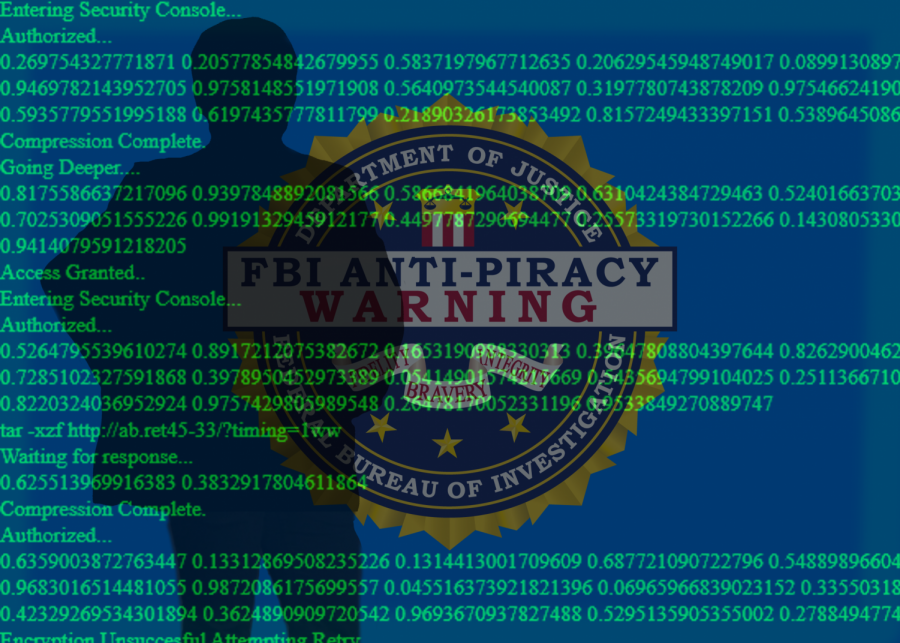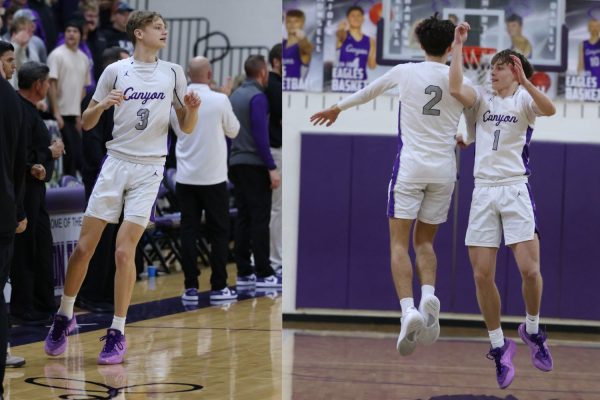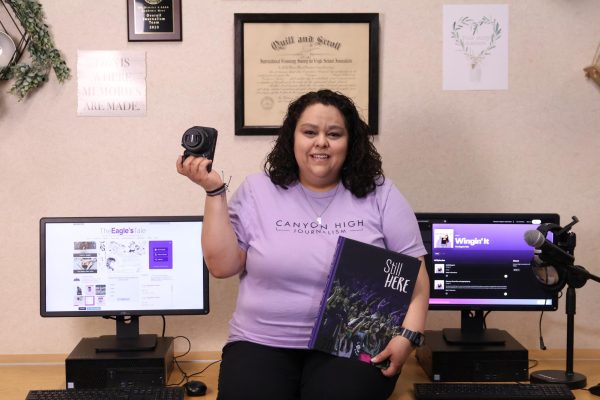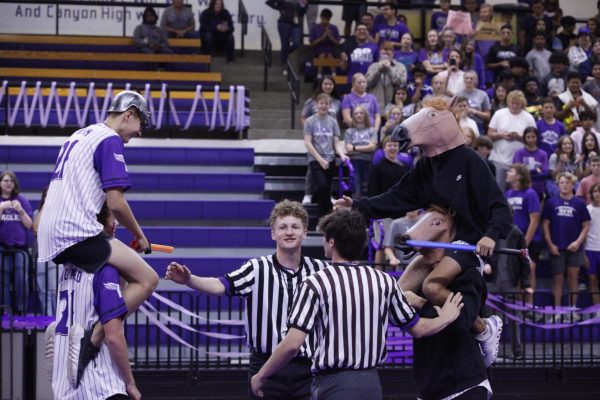Canyon ISD implements system designed to protect, educate students
Graphic Illustration by Blake Loria
Over the last few weeks, students may have noticed changes to their Google accounts: The district disabled several Chromebook extensions, and files uploaded to students’ Google Drives are scanned by the Managed Methods system. Canyon ISD Chief Technology Officer Michael Keough said these changes keep both students and the school district safe. “If you were to take a tax return, and you want to store it on your Google Drive, our systems are going to catch that in five minutes.” Keough said. “This system will catch that immediately and remove the sharing permission. It sees there’s a tax return in there, and it’s trying to prevent you from sharing it with other people.”
After the implementation of the Managed Methods system last month, Canyon ISD is adding an anti-piracy measure to the system which scans images and videos on students’ Google Drives.
With the addition of the scanning, the Managed Methods system also checks the Google Drive and Gmail systems in the district for not only illegal content, but content regarding self-harm, bullying and personal information. CISD Chief Technology Officer Michael Keough said the district bought the system to protect students while also educating them.
“I want students to learn from the system,” Keough said. “I don’t want to make it a system that makes a student’s life inconvenient. When something is blocked, my hope is the student looks at that, questions why it’s blocked, or why it’s taken down and realize that may not be something that’s safe. My hope is when students are seeing what we’re doing, they’re gonna look at things to do on their home PCs and their home phones. Because the truth is, whether it’s an app on an iPhone, on an Android or an extension on a Chromebook, these type of things are highly focused tools by hackers to compromise your personal safety and security.”
A Chromebook compromised by hackers or interfering software can propagate throughout the district’s systems, even possibly locking down machines and servers, Keough said.
“Chromebooks are not invulnerable to hacking,” Keough said. “They are a pretty secure machine, but if they get hacked because of some sort of video that finds a vulnerability from inside Chrome, things you’re typing on the computer, websites you’re going to, credit card numbers you enter—that can be sent to a third party. Typically, you get to watch the movie, but they also have stuff in the background compromising your computer. So, if a hacker gets your password because your Chromebook has been compromised, now they can get into your email and other accounts.”
Students will not be punished for any pirated content found in their Google Drives. Keough said the district is more concerned with preventing students from sharing personal information.
“We’re not much different than your future employer,” Keough said. “They’re going to have an internet system, or a Google Drive or an Office 365 drive, and what you put there is monitored by that company. With Canyon, they’re going to just take away the access. When you work for a company, you’re going to face higher consequences. But for a student, I think it’s a learning opportunity. We’re concerned about the students realizing the content’s illegal, and the content might have dangerous software behind it. So, think before you do this on a school computer, but even on a personal machine.”
Keough said the addition of the system is not meant to punish students, but instead predict student behavior and possibly help students dealing with mental health issues while also protecting the district.
“We want you to have as much freedom as possible to go to websites you want to for fun and education,” Keough said. “We can’t identify everything, but if we can catch some things that indicate a student is depressed or thinking about harming themselves or harming others, we want to try to catch early. So, it finds these markers, and it’s learning every day. The number one reason I bought it wasn’t so much to catch illegal videos, it was to find opportunities to reach out to a student who may not have a voice.”
Keough said it is important for students to be aware and have a better understanding of cybersecurity in the age of technology.
“Your life is becoming more and more of an online focus,” Keough said. “If you share something that involves a social security number, driver’s license, credit card number—you can’t share it with our system. I’d say, for the next 10 years, we’re at a place where we are trying to catch up to the technologies with our responsibility in that technology. This system is used to help some of those students who don’t consciously think about their personal safety online and help stop that.”

Howdy! I'm Blake Loria, and I want to pursue a career in journalism, so I am honored to be serving as editor-in-chief for my third and final year on staff. As a senior, I am quite involved around Canyon High, so when I am not editing or practicing for...











